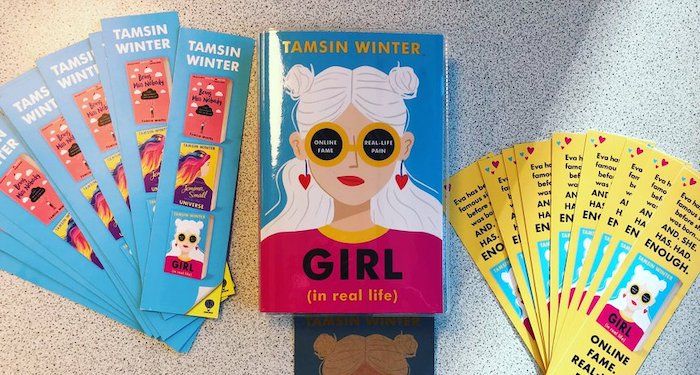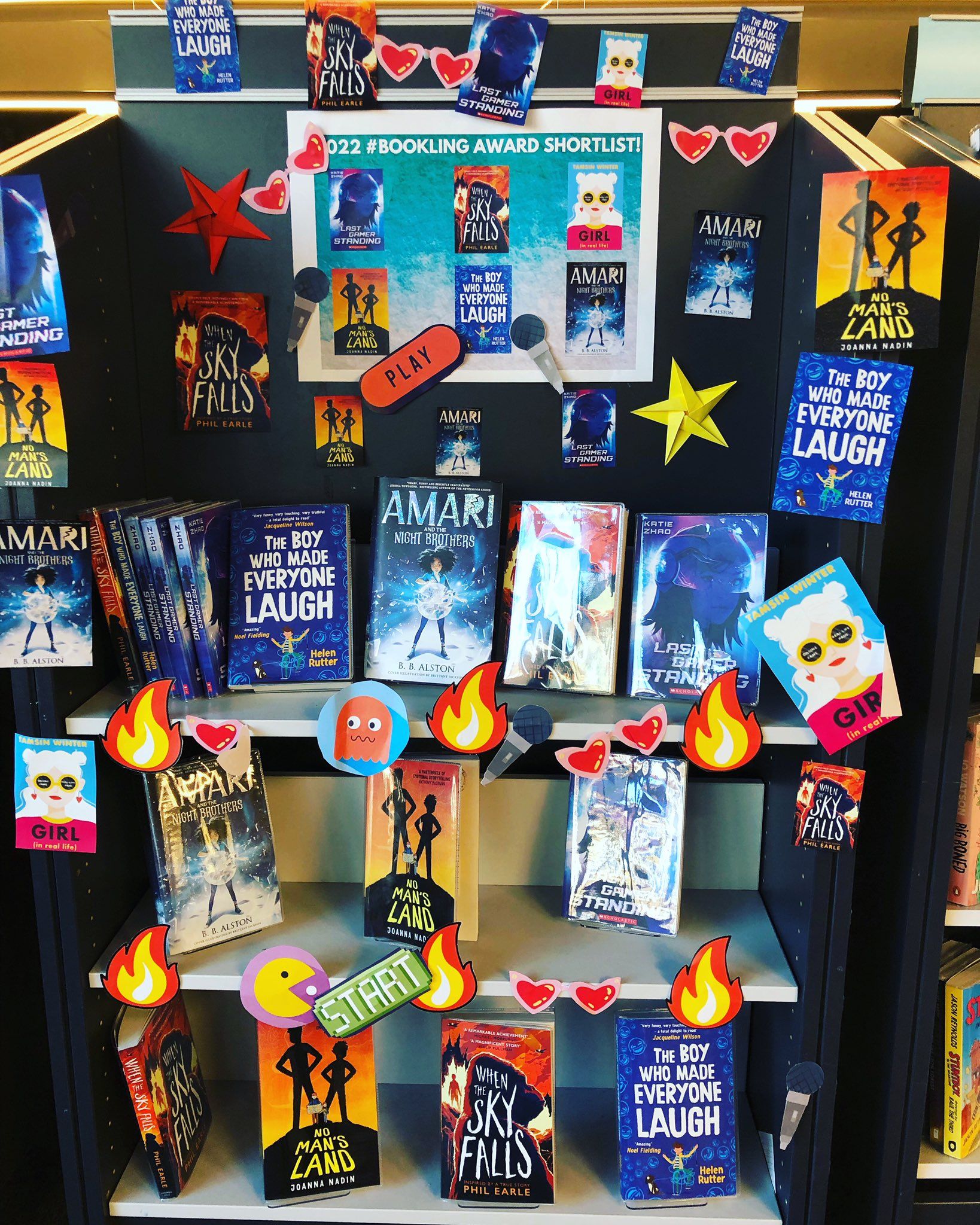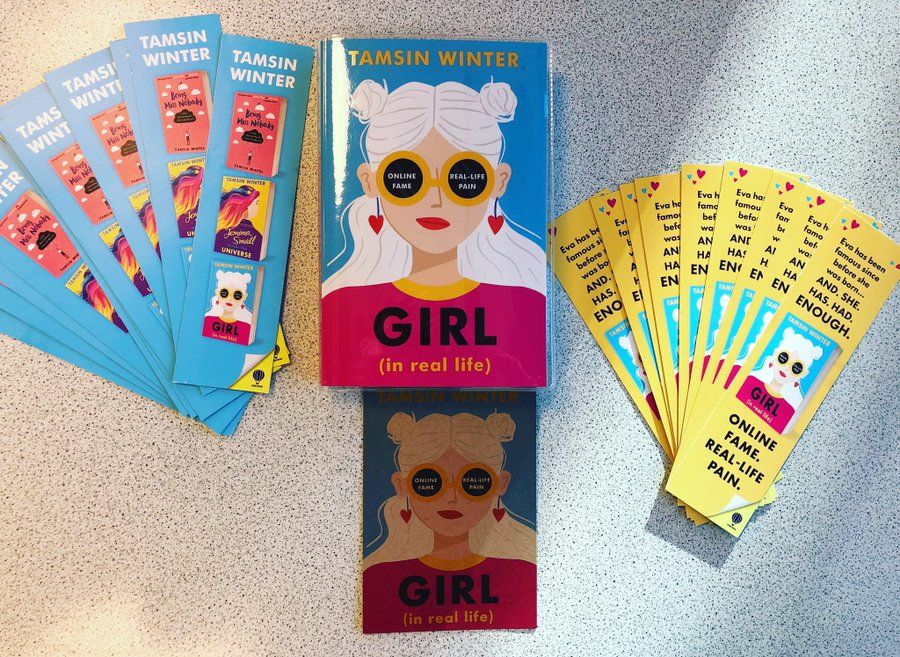
How To Run A Book Award In Your School Library
Why Start a Book Award in the First Place?
The main reason I decided to start a book award in my school library was to highlight books I felt were awesome but were maybe not getting enough attention. I wanted to have the library interact with authors, I wanted the students to interview authors for our podcast, and I was hoping to bring great authors to the library to visit. I also wanted students to have more of a voice when it came to highlighting the great books we have in the library.
In the end, it’s about their memories. I want the students to look back and remember that they had fun in the library, that they met a cool author and were maybe inspired to do something cool in return. Running a book award in your school library is a lot of work, but the benefits are huge. In my experience a book award brings new faces to the library, gets teachers involved, puts “under the radar” books in the hands of students and brings authors to the library in interesting and engaging ways. It’s also a lot of fun. Book Riot has written before on how intense it can be to be a judge in a book award. Ours isn’t so intense and is typically a lot more low key. It can be a nail-biting event though, and, if you have the time, very rewarding.
Book Award Rules
The rules of the book award are pretty simple. The first rule is that the books must be current. For example, for a book to be shortlisted for the 2022 book award, it must have been published in 2021.
There is another unwritten rule: I try to look for books that aren’t super famous already. It is a book award for those that I feel deserve more attention, books that students love but perhaps aren’t in the supermarket shelves.
The Longlist
The longlist is made in October or November and consists of approximately 24 books. From there, the students narrow it down to six books. How do they narrow it down? I look at borrowing stats, student reviews and input. I also go by word of mouth. I put the book covers on the wall and get students to vote, I put the blurbs of the books as well, this helps me get a well rounded idea as to which books to shortlist. This award is student led (as you’ll see below) so their input is crucial.
Create a Name
Instead of simply calling it The Glenthorne High School Book Award (and there’s nothing wrong with that, really) I wanted to give it a name that stuck.
I was lucky, because in one of my first book club meetings four years ago, I asked the students who were then in Year 8 to come up with a name for the group. One student suggested “The Booklings,” and it stuck.

It made sense, then, to call our book award “The Bookling” as it had a nice ring to it and carried some weight. I wanted authors to feel like they were winning The Carnegie or an Oscar, but on a much smaller level.
Promote Your Book Award
This goes without saying, but I’ve come up with a few ways that have helped spread the word.
Have a coffee morning for staff: Every year I have coffee and doughnuts in the Library either after school or just before where staff can come in, have a snack and a coffee or tea and hear me book talk the shortlisted books. Staff can then borrow the books and provide feedback at a later date.

Create a hashtag for social media & tag the authors: Every time I tweet or use Instagram and it relates to the book award, I use #Bookling so others can follow. All of the authors of the shortlist are tagged on Twitter and Instagram as are their publishers. This is an excellent way to spread the word.
Students also make bookmarks (using Canva), posters, and alternate covers. They also book-talk the books during the tutor times (homeroom) of other year groups.
The shortlist is placed in the staff bulletin and advertised on the television screens in the school’s Hub.
During library lessons, I get to promote the books to over 500 students over a period of two weeks. I also visit year group and House assemblies to bring attention to them. I hold review-writing contests based on the books and create windowsill displays with each of the books. One year, I made six-word book reviews of the books and printed them on A3 paper to help promote them around the school.
Get Feedback on Your Book Award
I know that I’m not going to get every student in the school to read these books, but it doesn’t stop me from trying. To gather input, I create a survey every year that all Year 7 and 8 students take part in.
In the survey, I provide the book covers, the blurb and the first page of each book (in separate questions). I get the students to pick their favourites and to provide feedback on which blurbs or first pages grabbed them the most and which ones they’d like to read.
This is an amazing way to get a better picture of the most popular book outside of borrowing stats.
Involve the Authors
We interact with the authors in some way or another. If I can get an author to visit, it’s the best way to promote the award. Sure, it might sway the students’ minds somewhat, but at the end of the day we’re trying to get the students to fall in love with reading, so I’m okay with it. If we can’t get the author in, we Skype or conduct a Twitter chat with them over a lunch hour.
One way or another, we involve the authors as much as possible to spread the word and to get the students to meet them either in person or virtually.
Every year I invite the authors, either in person or via Skype, Zoom, or Twitter to take part in our Awards Ceremony.
This event is run by our Student Library Assistants. We have food, games, quizzes and of course the awards. Every year we award best cover and then the Bookling itself. I live-Tweet the event as we’re doing it.
Each year I spend around £10 and buy a trophy with the details of the award engraved on it. We send this out to the authors: it makes it real and cements their status as a Bookling winner.
I hope you’ve found these tips helpful. If you run an award I’d love to hear about it as I’m always trying to make The Bookling a bigger and better event! If you want more tips, here are some other ideas on running a book award in your library.

















